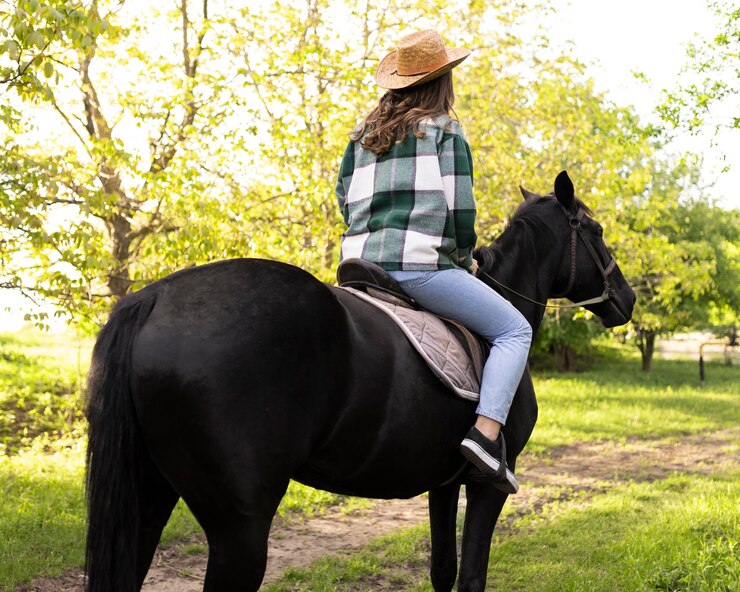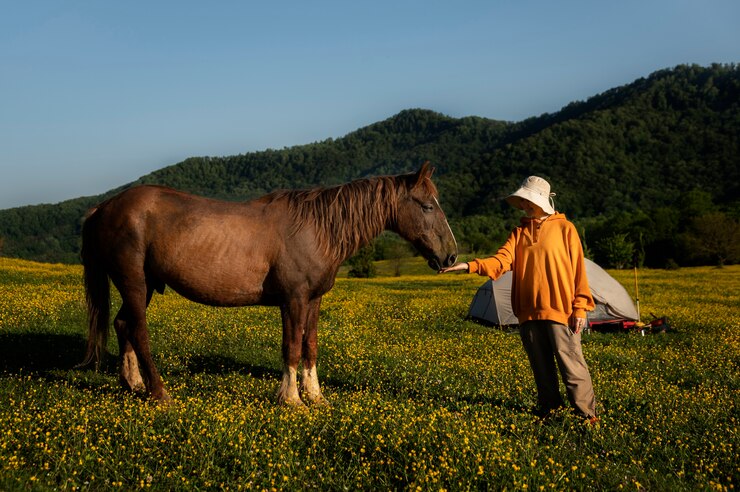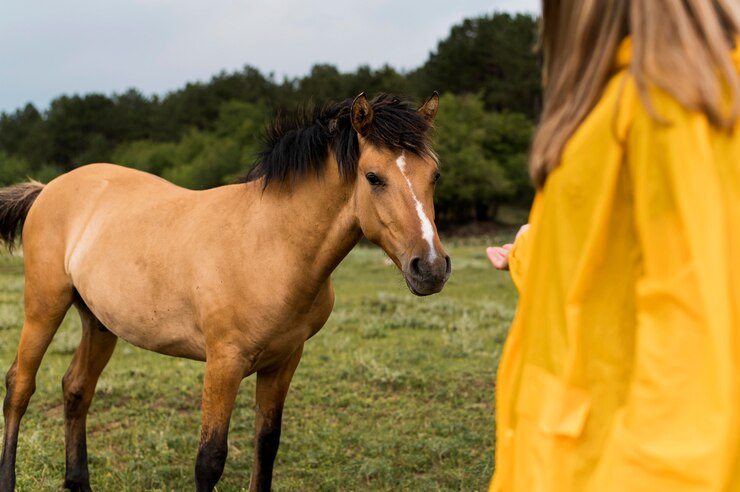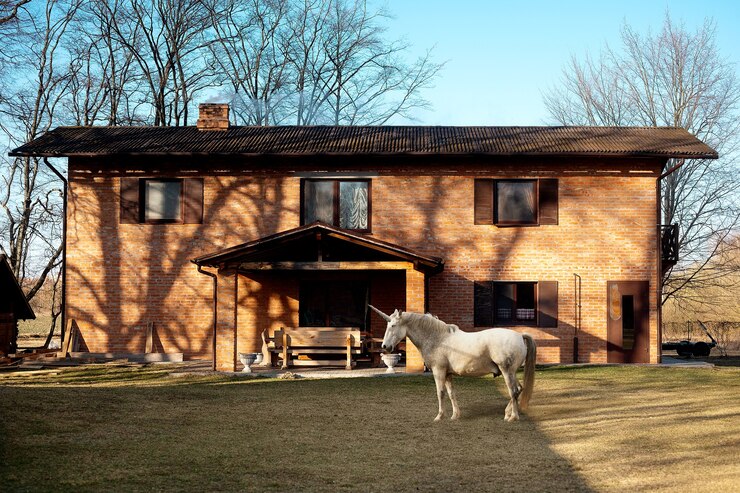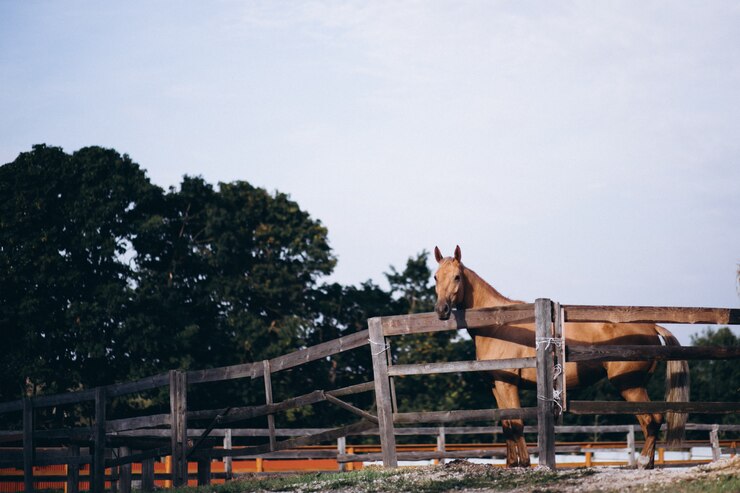Training young horses is a delicate yet rewarding process that requires patience, consistency, and a deep understanding of equine behavior. Read More
1. Groundwork Exercises:
Groundwork exercises form the cornerstone of training for young horses, teaching them essential skills such as leading, lunging, and yielding to pressure. These exercises help establish clear communication between horse and handler, build trust, and reinforce basic obedience commands. Incorporate exercises such as desensitization to unfamiliar objects, backing up, and lateral flexion to develop body awareness and responsiveness in young horses.
2. Desensitization and Exposure:
Expose young horses to a variety of stimuli and environments to desensitize them to potential sources of fear or anxiety. Introduce them to common objects, sounds, and situations they may encounter in their training and everyday life, gradually increasing the level of challenge as they become more confident. Consistent exposure to new experiences builds resilience and fosters a calm and confident demeanor in young horses.
3. Positive Reinforcement:
Utilize positive reinforcement techniques such as rewards, praise, and clicker training to reinforce desired behaviors and encourage learning in young horses. Rewarding horses for correct responses helps build confidence and motivation, making training sessions more enjoyable and effective. Focus on praising effort and progress, rather than solely on achieving perfect results, to instill a positive mindset in young horses.
4. Consistent and Clear Communication:
Establish clear and consistent communication with young horses through body language, voice cues, and gentle pressure cues. Be patient and attentive to their responses, adjusting your approach as needed to ensure understanding and compliance. Consistency in cues and expectations helps young horses develop trust and confidence in their handler and fosters a sense of security and predictability in their training environment.
5. Progressive Training Approach:
Adopt a progressive training approach that gradually introduces new concepts and challenges to young horses, building upon their existing skills and confidence levels. Break down complex behaviors into smaller, manageable steps, and progress at a pace that allows horses to succeed and retain what they’ve learned. Avoid overwhelming young horses with too much information or pressure, as this can lead to frustration and resistance.
6. Patience and Understanding:
Above all, approach training young horses with patience, empathy, and understanding. Recognize that each horse is unique and may progress at their own pace. Be mindful of their physical and emotional limits, and always prioritize their well-being and safety. Celebrate small victories and progress milestones, and be prepared to adapt your training approach as needed to meet the individual needs of each young horse.
Conclusion:
Building confidence and discipline in young horses is a gradual process that requires dedication, consistency, and a deep understanding of equine behavior. By employing essential training techniques such as groundwork exercises, desensitization, positive reinforcement, clear communication, progressive training, and patience, trainers can help young horses develop the skills and behaviors needed to succeed in various disciplines and build a strong foundation for a lifelong partnership based on trust and respect. With time, patience, and a positive training approach, young horses can reach their full potential and thrive in their training and beyond.

